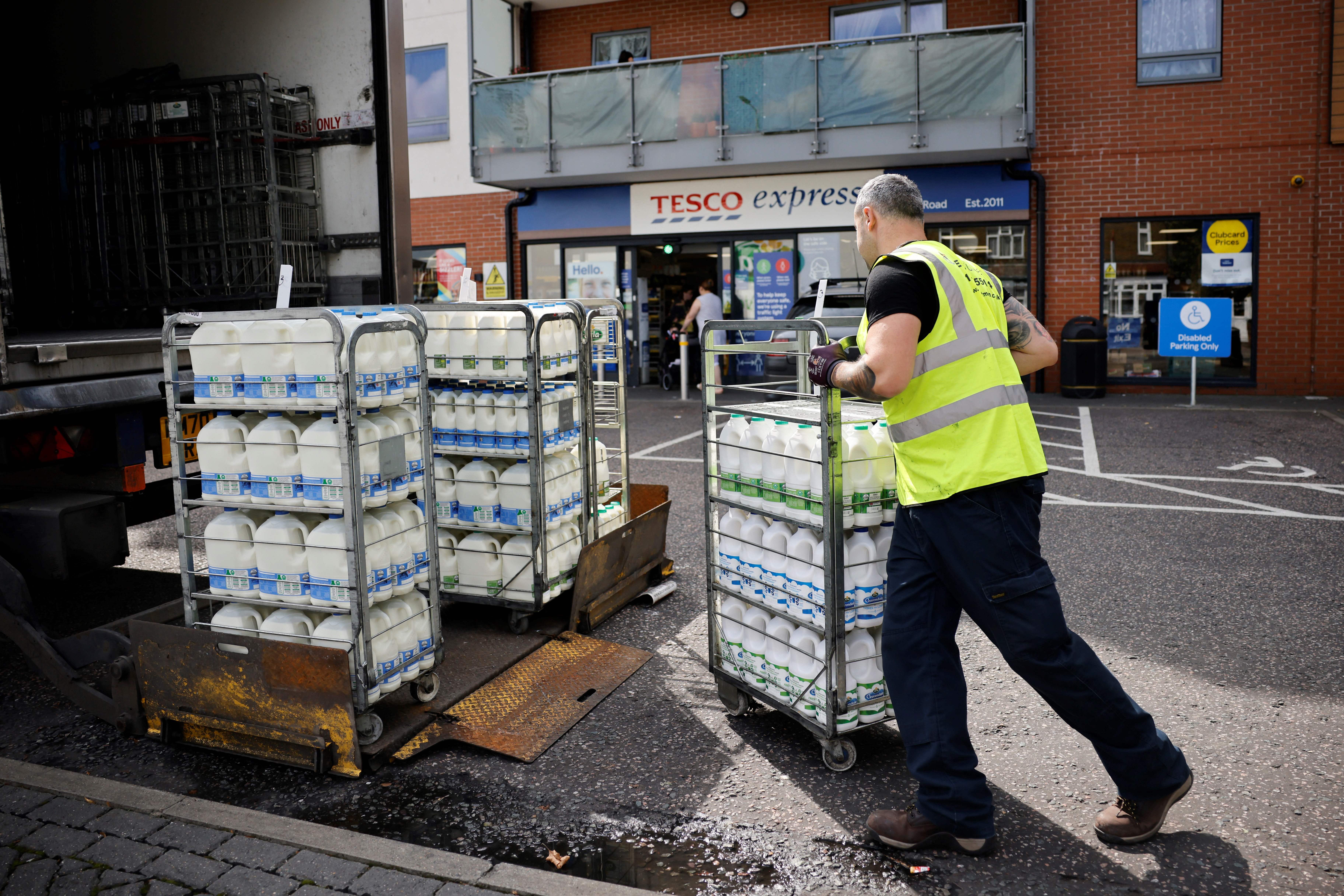
Major supermarkets Aldi and Lidl have followed Tesco and Sainsbury’s in cutting the price of milk, in a move described as “some light at the end of the inflationary tunnel” for customers.
Tesco, Britain’s largest supermarket, announced on Wednesday that it would lower the price of the dairy staple for the first time since May 2020, saying it had decided to pass a drop in wholesale costs on to shoppers.
Sainsbury’s swiftly followed suit the next day, mirroring Tesco in cutting 10p from the cost of four pints of milk to £1.55. A pint dropped from 95p to 90p, while two pints fell from £1.30 to £1.25.
These changes have now also been adopted by competitors Aldi and Lidl – but do little to reverse the huge increases of recent months.
The average price of a pint of milk for UK consumers rose from 42p in July 2021 to 70p in February, according to the Office for National Statistics’ Retail Price Index.
Tesco also pledged to lock the prices of more than 1,000 everyday products until 5 July, after Sainsbury’s said it was introducing lower prices on hundreds of items for shoppers with its Nectar loyalty card.
The milk price cut offers “some light at the end of the inflationary” tunnel, said analyst Laith Kahalf, after the rate of price rises in the UK soared to double digits last August for the first time since 1982.
“It also suggests that the UK’s fiercely competitive supermarket sector isn’t simply going to cash in on profits as wholesale costs fall, because there’s always a competitor waiting in the wings to do some undercutting,” Mr Khalaf, head of investment analysis at AJ Bell, told the BBC.
Tesco and Sainsbury’s both stated explicitly that the amount they pay farmers would not be impacted by the milk price cut.

The price cut came as Tesco said it had made £1bn in pre-tax profits last year despite soaring food prices, as customers people paid more for less.
While it sold £65.8bn in products and services, a rise of 7.2 per cent, the amount of product it sold fell – meaning it charged more on average for its products.
Despite these profits falling from more than £2bn in the previous year, Sharon Graham of the Unite union accused the company of “profiteering”.
“How can it be that, at a time when millions are struggling to feed their families, Britain’s biggest supermarket is profiteering as never before? What sort of country have we become? Frankly, the latest results are obscene,” Ms Graham said.
But analysts said Tesco was walking a “tightrope” in attempting to remain attractive to both customers and shareholders.
“Tesco seems to be making the calculation that it can absorb some pain now to maintain and even improve its market share, particularly from the German discounters Aldi and Lidl, and emerge in a stronger position once the economic outlook starts to pick up,” said Russ Mould, also of AJ Bell.
“There is merit to this strategy, particularly at a time when rivals, most notably Morrisons, are really struggling and don’t have Tesco’s financial strength.
“What Tesco doesn’t want to be drawn into is a race to the bottom on prices which cuts margins right to the bone for a prolonged period. For now, this is the tricky tightrope the supermarket must walk, while rewarding investors for their patience with steady dividends.”







